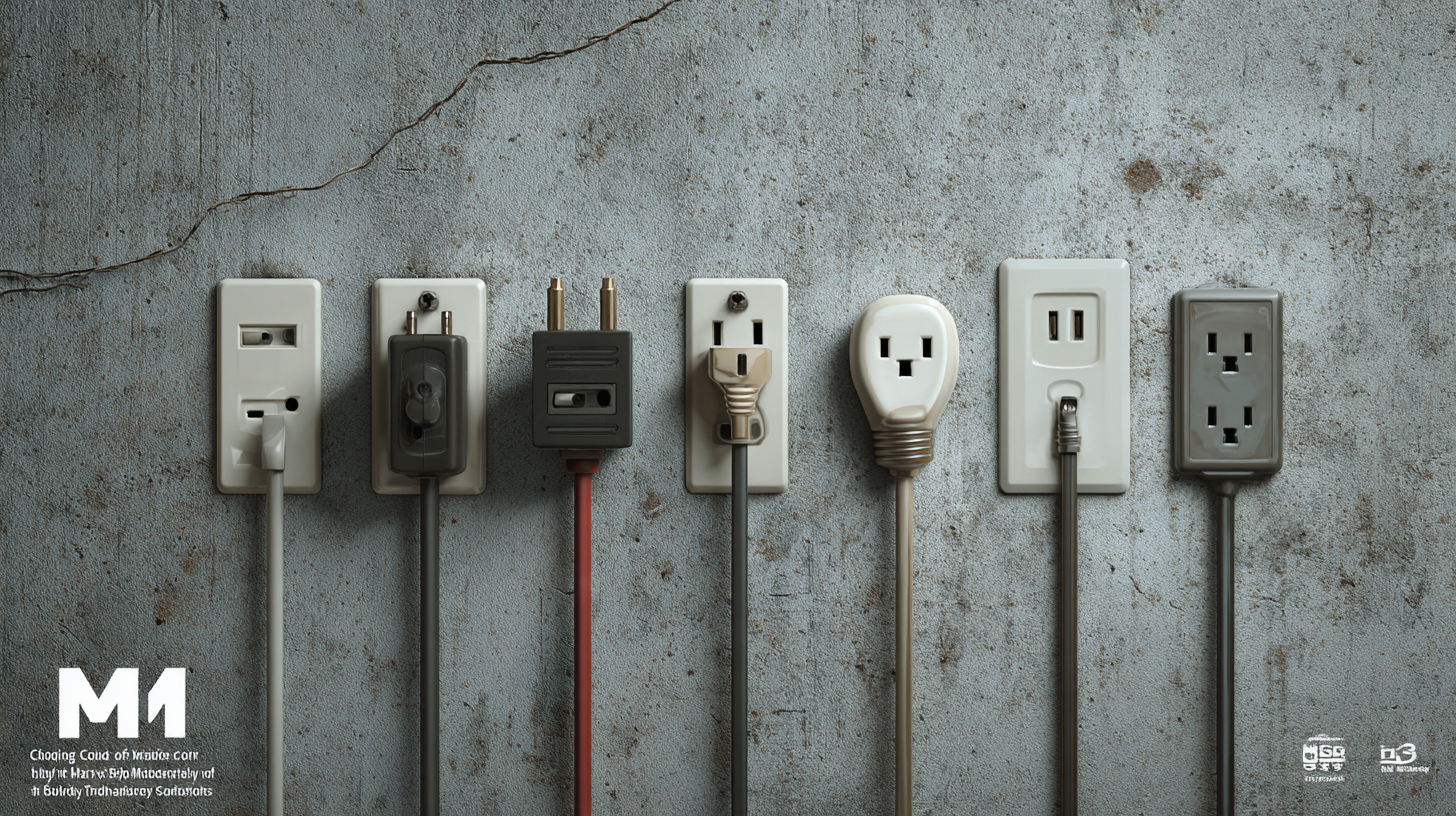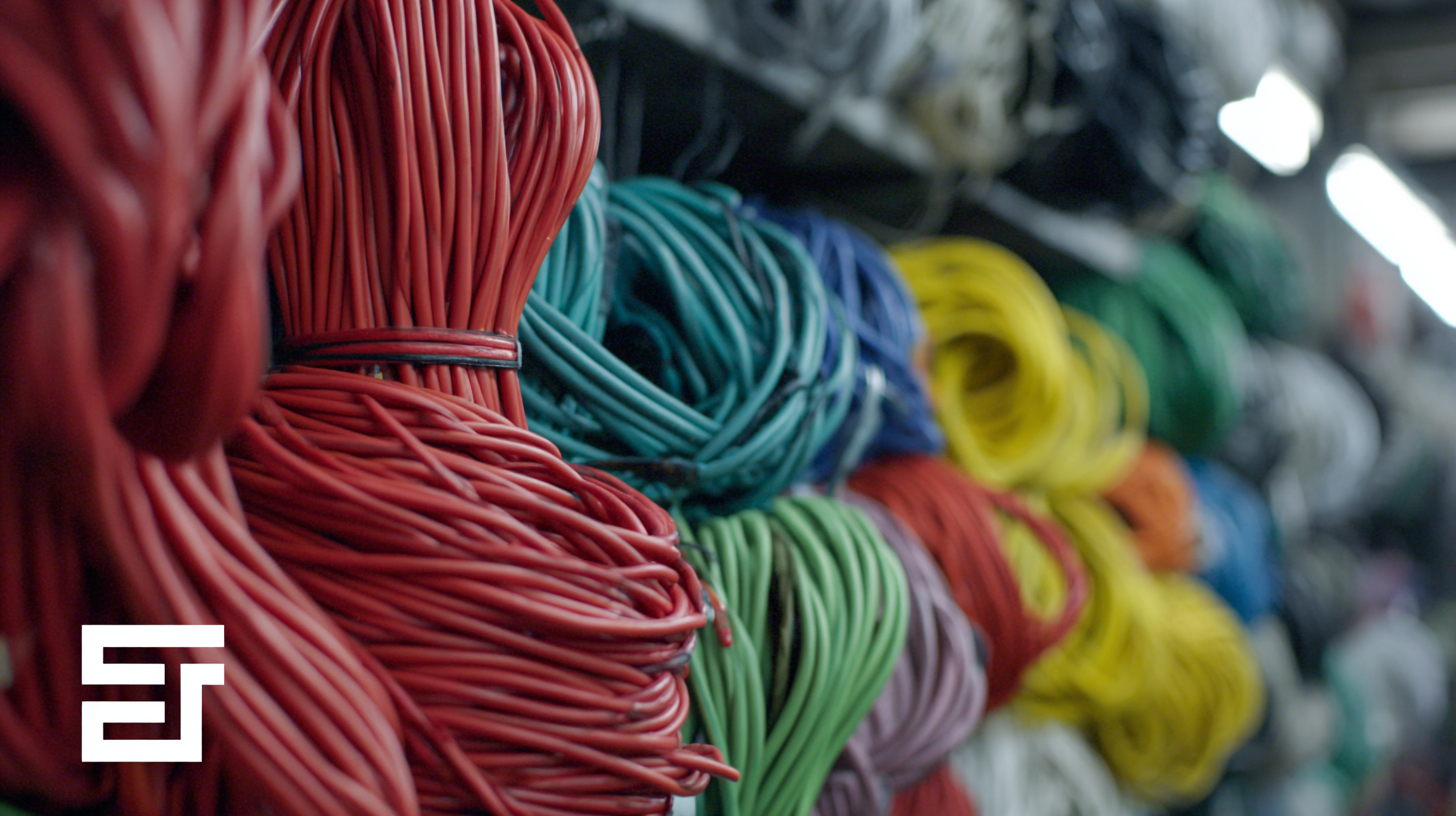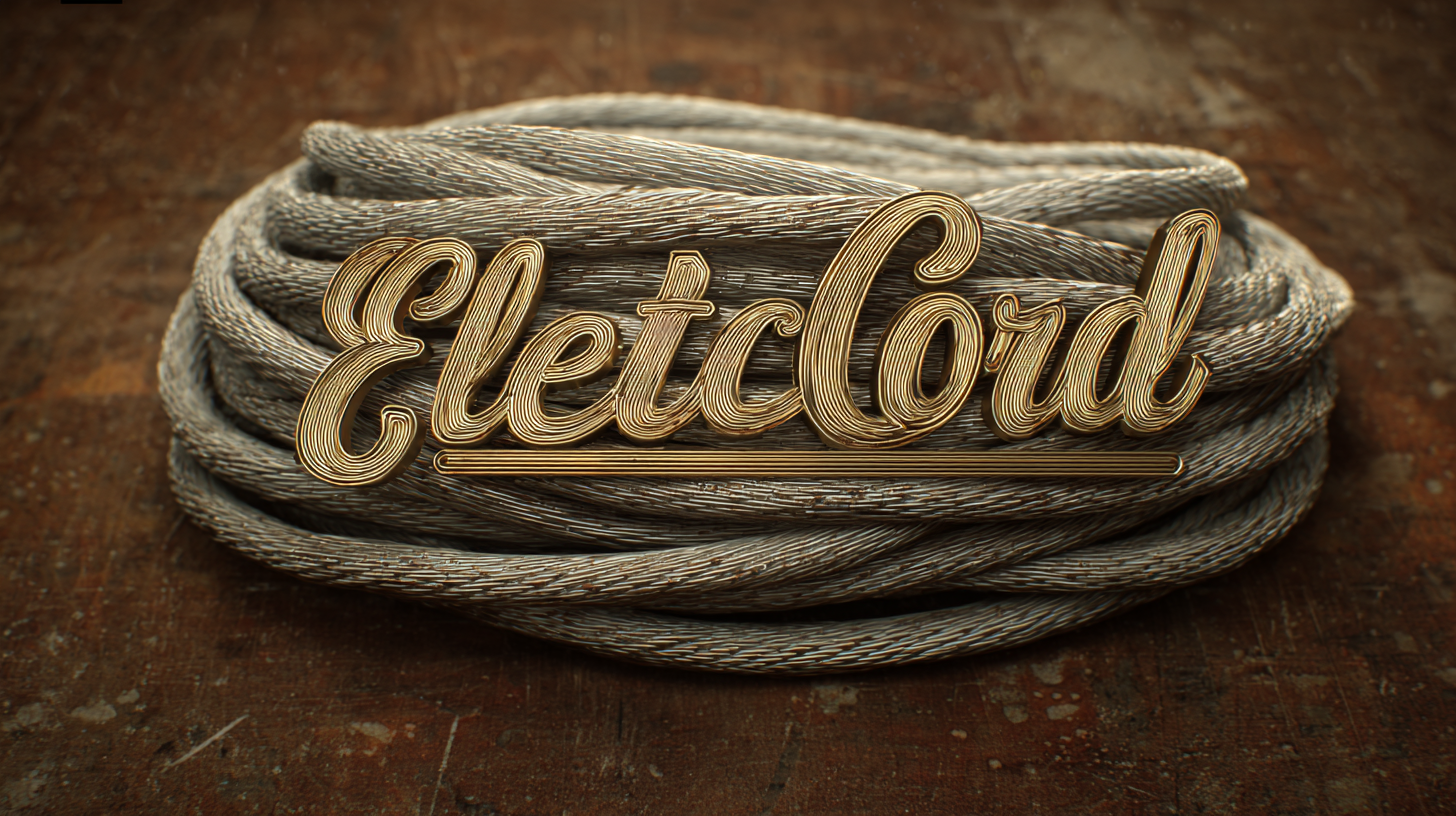Choosing the Right Manufacturer for the Best Electric Cord Solutions That Meet Industry Standards
In today's rapidly evolving market, choosing the right manufacturer for electric cord solutions is paramount to meeting industry standards and ensuring safety. According to a recent report by the National Electrical Manufacturers Association (NEMA), the demand for high-quality electric cords is projected to grow by 6% annually, driven by innovations in technology and increasing safety regulations. Furthermore, the International Electrotechnical Commission (IEC) has emphasized the importance of compliance with standards that govern the design and performance of electric cords to prevent hazards and promote energy efficiency. As industries ranging from construction to consumer electronics rely on reliable electric cord solutions, partnering with a manufacturer that adheres to these stringent standards will not only enhance product quality but also ensure compliance with regulatory requirements. As such, it is essential for businesses to carefully evaluate potential manufacturers to secure the best electric cord solutions for their operational needs.

Understanding Industry Standards for Electric Cords: Key Regulations and Compliance
When selecting the right manufacturer for electric cord solutions, understanding industry standards is crucial for ensuring product safety and compliance. According to the National Electrical Manufacturers Association (NEMA), over 25% of electric cord failures can be attributed to non-compliance with established safety regulations. These standards help protect consumers from potential hazards, and manufacturers must navigate a complex landscape of compliance, including certifications from organizations such as Underwriters Laboratories (UL), the Institute of Electrical and Electronics Engineers (IEEE), and the American National Standards Institute (ANSI).
Current compliance guidelines emphasize the need for materials that can withstand specific environmental conditions and electrical loads. Reports from the International Electrotechnical Commission (IEC) indicate that cords designed for higher current capacity require stricter insulation and durability standards to reduce risks of overheating and fire. For instance, IEC 60227 outlines the performance criteria for low-voltage cables, indicating the importance of selecting materials that can endure varying temperatures and wear-and-tear while maintaining efficiency. As consumer safety and environmental concerns continue to rise, thorough awareness of these key regulations is essential for manufacturers to deliver compliant, reliable electric cord solutions.
Evaluating Manufacturer Capabilities: Essential Certifications and Technical Expertise
 When selecting a manufacturer for electric cord solutions, evaluating their capabilities through
essential certifications and
technical expertise is paramount.
According to a report by MarketsandMarkets, the global electric cord industry is projected to reach
$12.5 billion by 2026, highlighting the importance of adhering to industry standards
and certifications such as ISO 9001 and UL compliance. Manufacturers with these certifications not only demonstrate their
commitment to quality management systems but also ensure that their products meet stringent safety standards which are crucial for market acceptance.
When selecting a manufacturer for electric cord solutions, evaluating their capabilities through
essential certifications and
technical expertise is paramount.
According to a report by MarketsandMarkets, the global electric cord industry is projected to reach
$12.5 billion by 2026, highlighting the importance of adhering to industry standards
and certifications such as ISO 9001 and UL compliance. Manufacturers with these certifications not only demonstrate their
commitment to quality management systems but also ensure that their products meet stringent safety standards which are crucial for market acceptance.
Additionally, technical expertise plays a critical role in a manufacturer’s ability to innovate and adapt to evolving industry requirements.
A study by Technavio indicates that advancements in materials and production technologies are reshaping the electric cord market, with companies investing heavily in
research and development. Manufacturers that possess a strong engineering team and a robust technical foundation can harness these innovations effectively, allowing them to provide solutions that not only comply with industry regulations but also offer
competitive advantages in terms of performance and durability. Choosing such manufacturers will ensure that your electric cord solutions are reliable, safe, and up to date with the latest advancements in the industry.
The Role of Materials in Electric Cord Manufacturing: Ensuring Safety and Longevity
When choosing a manufacturer for electric cords, the significance of materials cannot be overstated. High-quality materials are essential in ensuring safety and longevity, as poor material choices can lead to electrical hazards and product failures. According to a report by the International Electrotechnical Commission (IEC), nearly 30% of electrical accidents can be attributed to the use of substandard materials in manufacturing. This underscores the critical need for manufacturers to invest in high-grade raw materials that comply with industry standards.

Moreover, the durability of electric cords is heavily influenced by the types of insulation and conductor materials used. For instance, PVC and silicone are frequently used for insulation due to their excellent thermal properties and resistance to wear. A study by Materials Science Journal indicates that cords made with silicone insulation have a lifespan that is nearly 50% longer than those made with inferior materials. Therefore, selecting a manufacturer that prioritizes high-quality materials can significantly impact the performance and safety of electric cord solutions, ultimately leading to enhanced consumer trust and satisfaction.
Cost vs. Quality: Analyzing Price Points in Relation to Industry Standards
When considering the balance between cost and quality in electric cord solutions, it's essential to analyze how price points align with industry standards. Just as the rise of electric vehicles reveals significant savings on charging compared to traditional fuel costs, selecting an electric cord manufacturer should encompass more than just the initial price tag. Fluctuating costs in related industries highlight the importance of investing in high-quality products that guarantee durability and performance.
As the electric vehicle market grows, consumers are becoming increasingly aware of the long-term value associated with their purchases. This principle applies to electric cord manufacturing as well. Not only should manufacturers meet regulatory standards, but they should also provide solutions that maximize efficiency and safety. In a landscape where various external factors influence pricing, it’s crucial for businesses to weigh the costs against the benefits of investing in reliable and compliant solutions that enhance operational capabilities in the long run. By scrutinizing these aspects, manufacturers can ensure they make informed decisions that ultimately lead to sustainable growth and customer satisfaction.
Cost vs. Quality: Analyzing Price Points in Relation to Industry Standards
Future Trends in Electric Cord Solutions: Innovations Shaping the Market Landscape
The landscape of electric cord solutions is evolving rapidly, driven by technological innovations and changing consumer needs. Emerging trends include the integration of smart technology into cord designs, enhancing safety features, and improving energy efficiency. Manufacturers are now exploring the use of sustainable materials, addressing environmental concerns while also meeting stringent industry standards. This shift not only caters to the increasing demand for greener solutions but also positions manufacturers to lead in a competitive market.
When selecting an electric cord manufacturer, it is crucial to stay updated with these innovations. One tip is to seek manufacturers who actively participate in industry conferences and showcases, as they are more likely to be at the forefront of technological advancements. Additionally, prioritize companies that focus on research and development, as their commitment to innovation often translates into better product quality and performance.
Another important factor is to evaluate the sustainability practices of potential manufacturers. Look for those who utilize recycled materials and implement eco-friendly production processes. This not only ensures compliance with future regulations but also appeals to the growing market of environmentally conscious consumers. By aligning with forward-thinking manufacturers, businesses can enhance their reputation and ensure their electric cord solutions are both reliable and future-proof.
Choosing the Right Manufacturer for the Best Electric Cord Solutions That Meet Industry Standards - Future Trends in Electric Cord Solutions: Innovations Shaping the Market Landscape
| Category | Dimension | Standard Compliance | Innovative Features | Market Trend |
|---|---|---|---|---|
| Low Voltage Cords | 18 AWG - 12 AWG | UL Certification | Flexible Design | Growing demand for lightweight options |
| Outdoor Extension Cords | 12 AWG - 10 AWG | Weather Resistant Rating | Integrated Surge Protection | Increase in outdoor activities |
| High Voltage Cords | 10 AWG - 6 AWG | ISO Certification | Heat Resistant Materials | Rise in industrial applications |
| Smart Cords | Various AWG | CE Marking | App Connectivity | Surging interest in smart home technologies |
